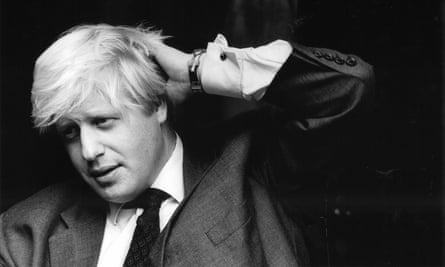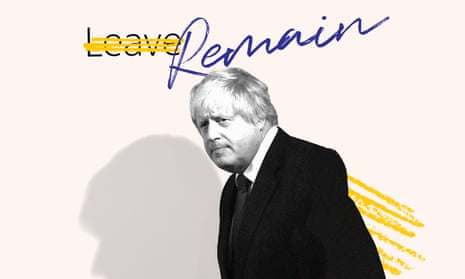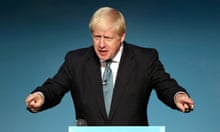Boris Johnson revealed his support for the European Union’s single market in “a pro-European” letter written the year before he decided to campaign for leave, it has emerged.
The likely prime minister’s pro-EU market sympathies were said to be revealed in a letter of condolence to the wife of the late Tory politician Sir Leon Brittan, who died in January 2015.
An account of the letter, shared with the Guardian, underscores Johnson’s lifelong equivocation over Britain’s EU membership. After feverish speculation, the Tory grassroots favourite declared for leave in February 2016, having wrestled with the question in separate articles, two making the case for Brexit, the third for remain.
His letter of tribute to Brittan was read aloud at a memorial service in May 2015, attended by political grandees including Ken Clarke and Nick Clegg. Brittan was one of the UK’s European commissioners at the time Johnson worked for the Daily Telegraph in Brussels.
The letter came across as “a pro-European letter” in praise of the British commissioner and his efforts to uphold the single market, Peter Guilford, a former spokesman for Brittan who knew both men well, recalled.
“It came across as a very pro-Leon Brittan letter, in which Leon was defending the single market and competition within the single market, which Britain is now trying to leave,” Guilford told the Guardian.
According to one account of the funeral in the Oldie magazine, the former EC official Jonathan Faull quoted the letter as endorsing Brittan’s efforts in shaping Europe towards “free trade and free markets” rather than “state aid and cartels”. It also said: “Without Leon, I really think the development of Europe would have been very different.”
In the early 1990s, the British government was banging the drum for a more economically liberal European project, a push that triggered the opening of markets in energy, aviation, telecoms and postal services, while cementing the UK’s place as one of the most influential members.
That philosophy chimed with the young Telegraph reporter, according to Guilford, who at the time was a rival correspondent for the Times, as well as Johnson’s squash partner.

“Intellectually, he was in favour of the project. He was also a conservative, so he bristled against protectionist elements, but ideologically he was as pro-European as they come,” said Guilford.
When Johnson declared for leave, “I was absolutely gobsmacked,” he said.
Johnson’s alleged support for the single market as recently as 2015 contrasts with his recent call to scrap EU rules on awarding state contracts – a policy intended to promote competition.
In the Tory leadership race, Johnson has portrayed himself as a champion of Brexit, saying the UK must leave, “do or die”, by 31 October. He once described his pro-remain article as “semi-parodic” and said reading the two articles side by side showed him it was “blindingly obvious what the right thing to do was”.
Former colleagues from the 2016 Vote Leave campaign told the Guardian that Johnson’s popularity among voters and the media was so important they had “priced in” his gaffes and lack of attention to detail before the campaign had begun.
After criticism for claiming that the US president Barack Obama had removed a bust of Winston Churchill from the Oval Office because he was “half-Kenyan” and for comparing the EU to the Third Reich, a former confidante of Johnson said he was aware that he could get away with insults and borderline racist comments.
“The bonhomie, the sub-PG Wodehouse schtick, the Have I Got News For You appearances, they have given him a protective force field. Otherwise unpalatable ideas that would kill off a fledgling political career can be discussed. He knows it,” the confidante said.
Members of his own party believe his struggle with detail reinforces suspicions he is incapable of serious political interventions.









